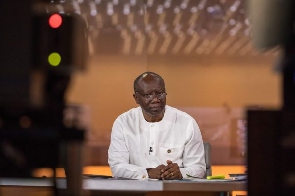The United Nations Economic Commission for Africa (ECA) has convened a meeting between African finance ministers, the Africa Private Sector Working Group, and the African Union (AU) Special Envoy on COVID-19 as the search continues for solutions to ensure African economies enjoy continued market access and meet their private sector debt service obligations.
The meeting aimed at finding new financing solutions to provide additional resources for countries to mitigate the impact of the ongoing COVID-19 pandemic and ways to improve the profile and terms of Africa’s commercial debt obligations so that Africa can better confront the health crisis.
The discussion engaged the recently formed Africa Private Sector Working Group (PSWG), which represents leading private creditors to African countries.
Ms. Vera Songwe, ECA’s Executive Secretary, said African countries are committed to meeting all their obligations to commercial creditors in a timely manner and want to maintain access to international debt markets for the build-back period.
“Most African countries were on a successful reform track prior to the crisis; that is why they had access to the capital markets,” she said.
Discussions focused on ways in which the interests of both African governments and commercial creditors could be aligned to deal with the double crisis of a health pandemic and an economic recession.
The finance ministers agreed on the importance of maintaining Eurobond coupon payments so as to maintain post-pandemic access to international debt markets for development finance, and on having an ongoing coordinated dialogue with creditors.
Speaking on behalf of the creditor group, Mr. Kevin Daly, Senior Investment Manager at Aberdeen Asset Management, said: “We expressed our desire to support African countries address liquidity pressures that have arisen due to the crisis, and by ensuring they remain current on their Eurobonds, we believe financing opportunities will materialise soon.”
He said the creditor group was proposing some innovative financing solutions, such as special purpose bonds that are targeted to social development goals.
“These would be appealing to investors who are increasingly focused on social development goal issues and instruments that are partially guaranteed by multilateral institutions and that could help to ease liquidity pressures,” Mr. Daly said.
For his part, former Credit Suisse boss and Ivorian cabinet minister, African Union Special Envoy Tidjane Thiam, who chaired the meeting, said: “We are all aligned; we want Africa to develop and grow, so let us work together on concrete solutions. Time is of the essence.”
The Africa PSWG coordinates the views of over 25 of the world’s foremost asset managers and financial institutions providing private finance to nations and companies through Eurobonds, syndicated loans and other credit products across the continent.
The group expressed the view that a one-size-fits-all solution would be counterproductive for African nations but welcomed the need to discuss coordinated approaches where possible and expedient.
All ministers, including the ones from Kenya, Cameroon, Senegal and Ghana, stressed the importance of keeping market access, and agreed that more work is needed to communicate the good economic track record of their countries prior to the crisis.
The meeting agreed to continue discussions towards rapid, pragmatic and effective solutions on Africa’s commercial debt to manage the COVID-19 crisis and turn Africa back to growth-restoring policies and actions.
The ECA, in its report launched early this month, estimated that a full one-month lockdown across Africa would cost the continent about 2.5 percent of its annual Gross Domestic Product (GDP), equivalent to about US$65.7bn per month.
This is “in addition to the wider external shock of lower commodity prices and investment flows,” the commission said in the report titled “COVID-19: Lockdown Exit Strategies for Africa”, which was issued on May 7.
Business News of Thursday, 21 May 2020
Source: thebusiness24online.net
African finance ministers pledge to keep servicing commercial debts
Entertainment












